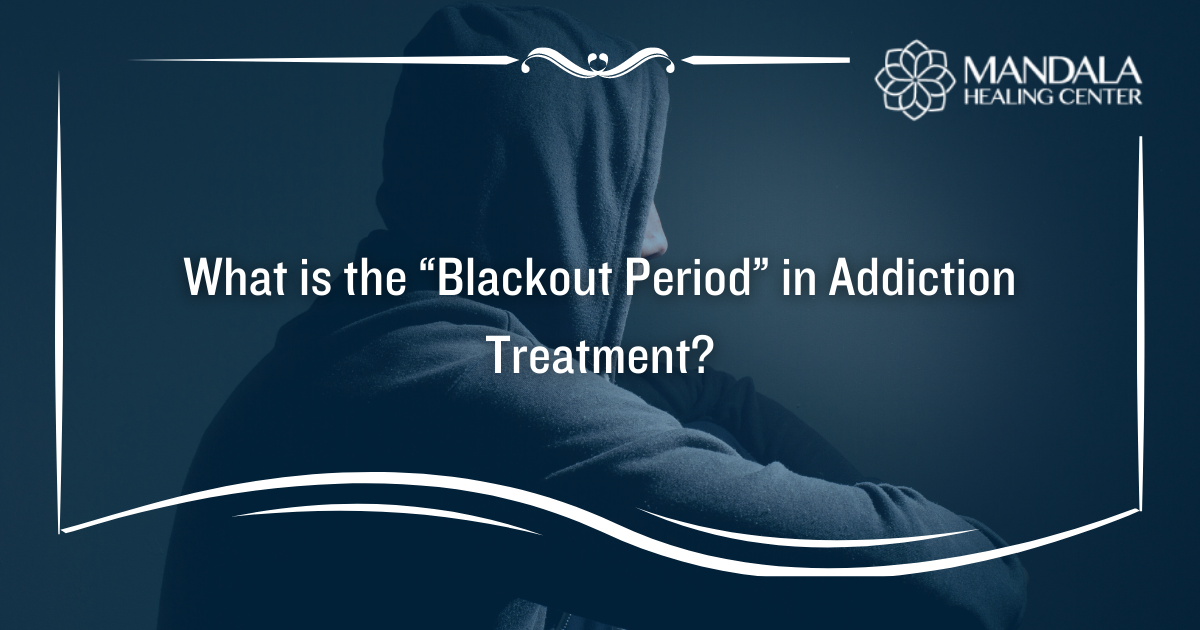Taking the leap to ask for help and go to rehab is a huge accomplishment. It isn’t easy to ask for help, but it also isn’t easy to adjust to the rehab environment. Many recovery facilities require patients to go through a mandatory week-long “blackout period” during which their ability to connect with the world outside of the addiction treatment center is limited. While this can be scary for individuals seeking treatment and their families, the blackout period helps patients adjust to rehab, process their emotions, and let go of their old lives.
Understanding the Blackout Period
The blackout period refers to the first 5-7 days after you arrive at an addiction treatment center and begin acclimating to the program. Some facilities refer to this period of time as a “blockout.” During this time, you are not allowed to connect with the outside world or individuals who are outside of the treatment facility. Instead, you are instructed to place all of your attention and energy on your sobriety.
The blackout period is a time during which you are not allowed to make phone calls, send mail, accept mail, read the news, or use the internet. Depending on the facility, you may be able to read recovery-related literature or watch some television.
Although this blackout time may feel like punishment, it is for your own good. It allows you to adjust to the treatment facility and concentrate entirely on your personal healing. Plus, you may find that your mental and emotional health benefit immensely from being removed from drama, toxic relationships, and the outside world.
The Purpose of the Blackout Period in Addiction Treatment
The blackout period usually lasts no longer than 7 days and, although it may feel challenging, can actually benefit your recovery in many different ways.
Take Time to Reflect
When you first enter rehab, you may have a lot on your mind. You may be dreading going through drug and alcohol withdrawal, scared of getting sober, and regretful about things in your past. And, as substances begin leaving your body, you may become increasingly depressed and anxious.
While you may be tempted to deal with these emotions by distracting yourself with social media or calling one of your old friends, it’s important to remember that you are embarking on a journey of change. You no longer have to rely on your old vices to quiet your mind. Instead, this is a time to reflect on your behaviors, consider your treatment goals, and focus completely on sobriety without worrying about other things.
Distance Yourself from Unhealthy Relationships
If you struggle with drugs and alcohol, you likely have friends that do, too. When your cravings get intense, you may be tempted to reach out to these friends. However, doing so can trigger more intense cravings or even a relapse. The truth is, the friends you used to get high or drink with probably do not have your best interest at heart. The blackout period when you first start an addiction treatment program gives you the perfect opportunity to distance yourself from unhealthy relationships.
Reset Healthy Relationships
While you should distance yourself from negative influences, you may still have healthy relationships that you would like to keep. However, even healthy relationships can be dysfunctional. Perhaps you have a significant other who enables your addiction by driving you to the liquor store or a parent who simply doesn’t understand your addiction, but wants to help. The blackout period allows you and your loved ones to reflect on your relationship, spend some much-needed time apart, and obtain a fresh start.
Better yet, after the blackout period is over, you will be sober and clear-headed–allowing you to be a better friend and family member.
Dedicate Your Time to Meeting People Like You
Addiction is often described as a disease of isolation. It affects the mind, body, and spirit and can make individuals suffering from it feel alone or “different” from the rest of their peers. Fortunately, addiction treatment centers place you in therapeutic communities with other like-minded individuals. During the blackout period, you can take advantage of your lack of contact with the outside world by increasing your contact with the people around you.
Sooner than you know it, you will meet lifelong friends who understand the pains of addiction and the rollercoaster that is recovery. And, when you miss your family and friends, you can lean on these individuals for support.
Adjust to the Addiction Treatment Program
Your life in rehab will be very different from your life in the real world. You will be subject to constant supervision, random drug tests, and a lot of therapy sessions. This can be difficult to get used to, but being distracted by the things you are eager to return home to doesn’t help. During the blackout period, you have an opportunity to fully submerge yourself into the addiction treatment experience. This will help you get used to the way the facility runs and what is expected of you.
Start Addiction Treatment in West Palm Beach Today
Blackout policies vary from one rehab facility to the next, but they always have your best interest in heart. Once the blackout period is over, you are free to make regular phone calls, send and receive mail, and even have in-person visits with your loved ones.
If you or a loved one are struggling with addiction and ready to begin your recovery journey, our team at Mandala Healing Center is eager to help. Call us today to get started.












